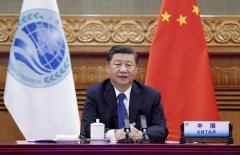More support easing vaccine patent rules, but hurdles remain
Several world leaders have praised the U.S. move to expand access to COVID-19 vaccines for poor nations by suspending patent protections on the shots
May 7, 2021, 1:03 AM
6 min read
Share to FacebookShare to TwitterEmail this articleFILE - In this April 8, 2021, file photo, a Northwell Health registered nurses fills a syringe with the Johnson & Johnson COVID-19 vaccine at a pop up vaccination site at the Albanian Islamic Cultural Center in the Staten Island borough of New York. The Biden administration on Wednesday, May 5, joined calls for more sharing of the technology behind COVID-19 vaccines to help speed the end of the pandemic, a shift that puts the U.S. alongside many in the developing world who want rich countries to do more to get doses to the needy. (AP Photo/Mary Altaffer, File)
GENEVA -- Several world leaders Thursday praised the U.S. call to remove patent protections on COVID-19 vaccines to help poor countries obtain shots. But the proposal faces a multitude of hurdles, including resistance from the pharmaceutical industry.
Nor is it clear what effect such a step might have on the campaign to vanquish the outbreak.
Activists and humanitarian institutions cheered after the U.S. reversed course Wednesday and called for a waiver of intellectual property protections on the vaccine. The decision ultimately is up to the 164-member World Trade Organization, and if just one country votes against a waiver, the proposal will fail.
The Biden administration announcement made the U.S. the first country in the developed world with big vaccine manufacturing to publicly support the waiver idea floated by India and South Africa in October. On Thursday, French President Emmanuel Macron embraced it as well.
“I completely favor this opening up of the intellectual property,” Macron said at a vaccine center.
However, like many pharmaceutical companies, Macron insisted that a waiver would not solve the problem of access to vaccines. He said manufacturers in places like Africa are not now equipped to make COVID-19 vaccines, so donations of shots from wealthier countries should be given priority instead.
Pfizer, Moderna, Johnson & Johnson and AstraZeneca — all companies with licensed COVID-19 vaccines — had no immediate comment, though Moderna has long said it will not pursue rivals for patent infringement during the pandemic.
U.S. Secretary of State Antony Blinken underscored the urgency of moving fast now.
“On the current trajectory, if we don’t do more, if the entire world doesn’t do more, the world won’t be vaccinated until 2024,” he said in an interview with NBC while visiting Ukraine.
India, as expected, welcomed the move. Australian Prime Minister Scott Morrison called the U.S. position “great news.”
Italian Foreign Minister Luigi Di Maio wrote on Facebook that the U.S. announcement was “a very important signal” and that the world needs “free access” to vaccine patents. But Italian Premier Mario Draghi was more circumspect.
Russian President Vladimir Putin said his country would support it. U.N. Secretary-General Antonio Guterres welcomed the U.S. decision too.
But German Chancellor Angela Merkel’s office spoke out against it, saying: “The protection of intellectual property is a source of innovation and must remain so in the future.”
A Merkel spokeswoman, speaking on customary condition of anonymity, said Germany is focused instead on how to increase vaccine manufacturers' production capacity.
In Brazil, one of the deadliest COVID-19 hot spots in the world, Health Minister Marcelo Queiroga said he fears that the country does not have the means to produce vaccines and that the lifting of patent protections could interfere with Brazil's efforts to buy doses from pharmaceutical companies.
In closed-door talks at the WTO in recent months, Australia, Britain, Canada, the European Union, Japan, Norway, Singapore and the United States opposed the waiver idea, according to a Geneva-based trade official who was not authorized the discuss the matter and spoke on condition of anonymity.








